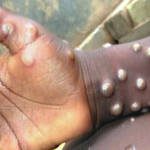It is trite knowledge that diseases and sicknesses are consequentially an integral part of our daily lives.
No matter how well we take good care of ourselves, we can never escape the scathing sword of sicknesses and diseases.
Indeed, diseases and sicknesses are no respecter of persons.
Diseases have no regard for gender, creed, race, ethnicity, religion, politics, or social standing.
For many of us, when the unfortunate happens and we fall sick or are bogged down by an ailment our first point of call is a health facility.
Health facilities are ordinarily expected to be places of solace, tranquility, and healing.
Unfortunately, that is not the case. The work being done by some of both public and private health facilities across the length and breadth of this country leaves much to be desired.
I have had an excruciatingly unpleasant experience of losing two close relatives in recent times, one in February at a public facility and the other in August at a private facility.
This got me thinking deeply about how our very lives are virtually in the hands of health workers and how well they handle it determines our fate.
Quite often, we read in both mainstream and social media about the poor services rendered by some hospitals in the country.
And until you become a victim, you might not appreciate or fully grasp the gravity of the sad reality in a lot of our health facilities.
Some of our compatriots who have been at the receiving end of these poor services mostly complain about rude, uncaring, and unfriendly medical staff and how their negligence wreaks havoc on innocent patients.
Others also complain bitterly about substandard medical facilities as well as medical staff whose handling of patients begs the question of whether they are duly trained and certificated medical professionals or not!
The actions and inaction of medical staff in our medical facilities are partly to blame for the high mortality rates being recorded across the country.
The administration of wrong medications, wrong dosages and application rates as well as wrong surgical procedures have killed and maimed too many of our people and we should all be concerned since we are all at risk of dying needlessly from substandard medical facilities and incompetent medical staff.
Why on earth should one visit a health facility in times of sickness without returning home hale and hearty?
For me, the number of deaths being recorded in some of our health facilities in recent times is way too many and this calls for an urgent probe into the activities of our health facilities.
For instance, on February 18, this year a 40-year-old male relative of mine was suddenly taken ill and was admitted at a public health facility, and in less than 10 hours he was gone just like that.
I have a strong feeling that he could have been saved if not for the negligence and inaction on the part of the medical handlers.
Around 11 pm a particular drug was administered to the patient whose breathing was being supported by oxygen only for his breathing to sharply and irregularly rise and fall and in less than a minute after that drug was administered, he was already gone and the usual we are sorry bla bla bla was re-echoed quite painfully.
As if that was not enough, just last month my 44-year-old big sister walked into a private facility somewhere in Kumasi for a myomectomy (Fibroid surgery).
She was not ‘sick’, she was hale and hearty. The surgical process I am told was successfully done on Sunday only for her health to deteriorate afterward and by Thursday she was also gone painfully just like that.
In both of these scenarios from a layman’s point of view, I could draw conclusions of ineptitude coupled with negligence and of course lack of respect and responsibility for human lives as the common risk factor that played out.
It is therefore not surprising to know that people travel outside the country just to access good quality medical care which involves huge sums of money.
But, the question is what about the masses who do not have the wherewithal to access quality health care outside the country?
Should we continue to die needlessly like some experimental guinea pigs?
What are we doing as a people to also create a congenial medical atmosphere for the good people of this country so we stop dying like chickens?
Most medical professionals have no sense of responsibility for human lives.
They kill patients needlessly in our medical facilities through their actions and inactions ostensibly because they are sure to get away with it!
I believe that naming and shaming medical personnel and facilities who are negligent in the discharge of their duties as well as imposing stringent and punitive sanctions on culprits will go a long way to sanitize the system for better healthcare delivery.
As it stands now fighting one’s way through the justice delivery in case of medical negligence is an uphill task.
Special courts should be designated to handle cases of medical negligence and infractions for victims and their families to be able to seek redress.
To this end, I will like to urge the Ghana Health Service (GHS) which has the supervisory and regulatory authority over all health facilities in the country to intensify supervision, monitoring, and evaluation of all health facilities in the country and deal drastically with non-performing facilities.
This is about human lives and absolutely nothing should be left to chance.
I am sure that if GHS start closing down medical facilities for just a single human life lost negligently, handlers of medical facilities will begin to sit up.
The Ghana Medical Association (GMA), The Ghana Medical and Dental Council, Ghana Registered Nurses and Midwives Association (GRNMA) and all other professional bodies within Ghana’s healthcare space should admonish their members to ensure the highest standards of ethics and professionalism for the betterment of healthcare.
It is my view that these professional bodies should endeavour to crack the whip and withdraw the license of members who breach their code of conduct and ethics.
I would like to urge the government to work hard to ensure our medical infrastructure are up to scratch whether in urban or rural areas for an efficient health administration system.
Also, government must work hard to ensure a proper and well-functioning and above all a sustainable National Health Insurance Scheme (NHIS) to save more lives especially in low-income groups.
Remember, this is about human lives and we need to do everything within our power to make NHIS one of the best if not the best in the sub-region.
Again, government should ensure the availability of basic drugs in our health facilities.
It is sad to visit some facilities like Community Health and Planning Services (CHPS) compounds, Health, Centers, Clinics and even hospitals only to be given a prescription to buy your drugs from outside the facility.
Indeed, this situation makes a mockery of the emergency services being delivered by these facilities. What is the usefulness of the emergency unit of any medical facility without basic drugs to respond to cases?
The issue of fake drugs purchased by our central medical stores and supplied to health facilities especially public health facilities should also be looked at for the betterment of our health administration system.
The “No Bed” syndrome in our health facilities continues to be a blot on our collective conscience as a people and there should be a deliberate and well-calculated plan in place to ensure that going forward the “No Bed” syndrome would be a thing of the past.
Never again should any patient visit any facility and sleep on the floor, on a bench, or in a plastic chair. We have come too far as a nation to allow such avoidable and disgraceful incidents to be part of the narrative. Let us all tell ourselves Never Again!
Let me quickly add that there are some medical facilities and medical staff who are doing a great job and doing their best to save lives and we doff our hearts to them for saving lives to the best of their abilities.
Kudos to all those who are holding high the flag of the medical profession and placing our country on a pedestal despite the challenges.
We are grateful for the great job you guys are doing.
Let us all put our hands to the wheel and make our country a better place to live in.
God bless our homeland Ghana and make her great and strong.
By Felix Kwame Quainoo




